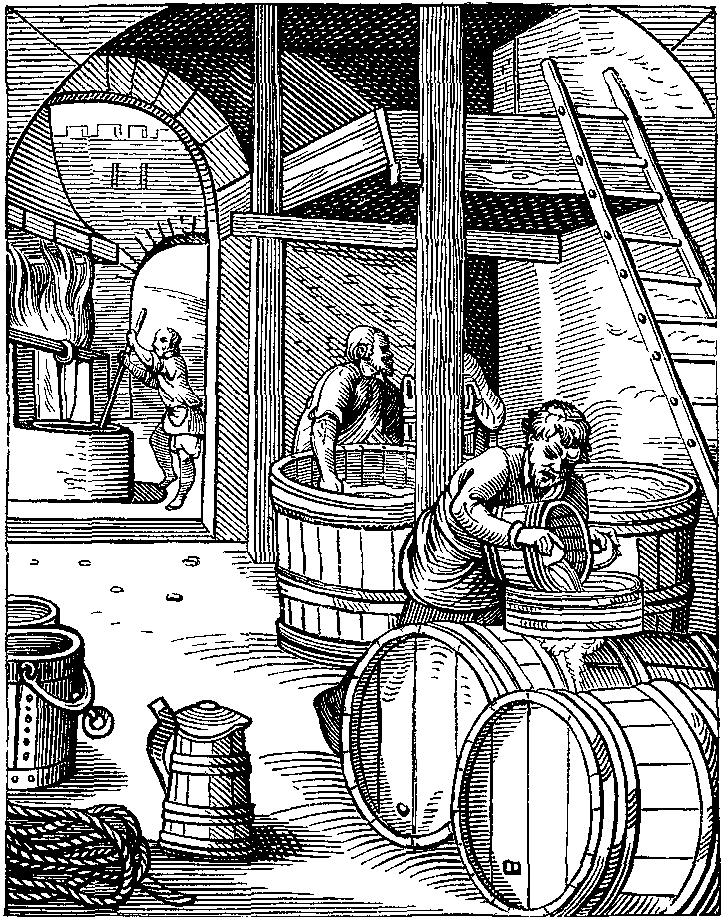|
Gordon Rattray Taylor
Gordon Rattray Taylor (11 January 1911 – 7 December 1981) was a popular British author and journalist. He is most famous for his 1968 book ''The Biological Time Bomb'', which heralded the rise of biotechnology and for his 1983 book ''The Great Evolution Mystery''. Biography Gordon Rattray Taylor was born in Eastbourne on 11 January 1911, and educated at Radley College public school, before studying natural sciences at Trinity College, Cambridge. In 1933 he entered journalism. During the war he worked in the Psychological Warfare division of SHAEF. In 1958 he joined the BBC where he wrote and devised science television programs such as ''Eye on Research''. In 1966 he became a full-time author. He served as a member of the Society for Psychical Research, London (1976–81). Writing In ''The Biological Time Bomb'' Taylor heralded the advent of artificial insemination, organ transplants, as well as research into memory and controlling moods. Evolution Taylor wrot ... [...More Info...] [...Related Items...] OR: [Wikipedia] [Google] [Baidu] |
Journalist
A journalist is an individual that collects/gathers information in form of text, audio, or pictures, processes them into a news-worthy form, and disseminates it to the public. The act or process mainly done by the journalist is called journalism. Roles Journalists can be broadcast, print, advertising, and public relations personnel, and, depending on the form of journalism, the term ''journalist'' may also include various categories of individuals as per the roles they play in the process. This includes reporters, correspondents, citizen journalists, editors, editorial-writers, columnists, and visual journalists, such as photojournalists (journalists who use the medium of photography). A reporter is a type of journalist who researches, writes and reports on information in order to present using sources. This may entail conducting interviews, information-gathering and/or writing articles. Reporters may split their time between working in a newsroom, or from home, and goin ... [...More Info...] [...Related Items...] OR: [Wikipedia] [Google] [Baidu] |
Lancelot Law Whyte
Lancelot Law Whyte (4 November 1896 – 14 September 1972) was a Scottish philosopher, theoretical physicist, historian of science and financier. Early life and career Lancelot Law Whyte, the son of Dr. Alexander Whyte, was born in Edinburgh, Scotland into the privileged childhood of a great house; Alexander Whyte was at the time a renowned Presbyterian minister. Lancelot received his education at Bedales School in England. He was a soldier during the First World War, returning to enter Trinity College, Cambridge and studying physics under Ernest Rutherford. Subsequently, he studied at Göttingen University in Germany. Whyte’s interest developed as much along lines of human evolution and philosophy as that of theoretical physics. To earn a living, White entered industry and banking in Britain, but he returned to Germany for a year, where he met Albert Einstein. Back in Britain, in 1935 Whyte met Frank Whittle, one of the pioneers of the turbojet engine, and became a bac ... [...More Info...] [...Related Items...] OR: [Wikipedia] [Google] [Baidu] |
1911 Births
A notable ongoing event was the Comparison of the Amundsen and Scott Expeditions, race for the South Pole. Events January * January 1 – A decade after federation, the Northern Territory and the Australian Capital Territory are added to the Commonwealth of Australia. * January 3 ** 1911 Kebin earthquake: An earthquake of 7.7 Moment magnitude scale, moment magnitude strikes near Almaty in Russian Turkestan, killing 450 or more people. ** Siege of Sidney Street in London: Two Latvian people, Latvian anarchists die, after a seven-hour siege against a combined police and military force. Home Secretary Winston Churchill arrives to oversee events. * January 5 – Egypt's Zamalek SC is founded as a general sports and Association football club by Belgian lawyer George Merzbach as Qasr El Nile Club. * January 14 – Roald Amundsen's South Pole expedition makes landfall, on the eastern edge of the Ross Ice Shelf. * January 18 – Eugene B. El ... [...More Info...] [...Related Items...] OR: [Wikipedia] [Google] [Baidu] |
Richard Milton (author)
Richard Milton (born 1943) is a British journalist and amateur archaeologist. An engineer by training, Milton has written on the topics of popular history, business, and alternative science, and published one novel. Books ''The Facts of Life: Shattering the Myths of Darwinism'' is a non-religious creationist attack on evolutionary biology, following the arguments of "creation science". It presents an "idiosyncratic collection of scientific anomalies purported to support the fallacies of Darwinism", referencing fringe figures such as Rupert Sheldrake. In a review in ''Third Way'' Douglas Spanner, while suggesting that it should be taken seriously by orthodox Darwinism, was dubious about his attempts to dispute traditional methods of estimating the earth's age and said "on matters of biological importance he can be off-course at times". His books, especially those on scientific controversies, have been roundly rejected. To his critics Milton is a contrarian who engages in contro ... [...More Info...] [...Related Items...] OR: [Wikipedia] [Google] [Baidu] |
History Of Biotechnology
Biotechnology is the application of scientific and engineering principles to the processing of materials by biological agents to provide goods and services. From its inception, biotechnology has maintained a close relationship with society. Although now most often associated with the development of drugs, historically biotechnology has been principally associated with food, addressing such issues as malnutrition and famine. The history of biotechnology begins with zymotechnology, which commenced with a focus on brewing techniques for beer. By World War I, however, zymotechnology would expand to tackle larger industrial issues, and the potential of industrial fermentation gave rise to biotechnology. However, both the single-cell protein and gasohol projects failed to progress due to varying issues including public resistance, a changing economic scene, and shifts in political power. Yet the formation of a new field, genetic engineering, would soon bring biotechnology to the forefro ... [...More Info...] [...Related Items...] OR: [Wikipedia] [Google] [Baidu] |
The Quarterly Review Of Biology ''The Quarterly Review of Biology'' is a peer-reviewed scientific journal covering all aspects of biolog |
.jpg)

